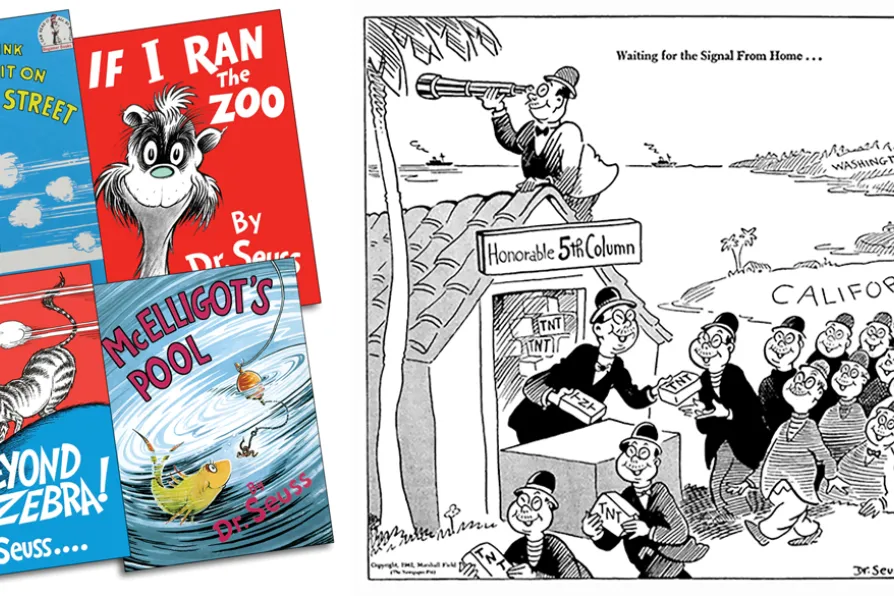SCOTT ALSWORTH foresees the coming of the smaller, leaner, and class conscious indie studio, with art as its guiding star
Not the whole story
Some of the much-loved Dr Seuss children's books have been withdrawn after their publishers deemed them to be racist. That may be so, says CHRIS ORLET, but the wider picture provides even more cause for concern

 PERNICIOUS: Some of the titles withdrawn from bookshops and Dr Seuss cartoon of a Japanese man handing out TNT explosives to fellow Japanese US citizens
PERNICIOUS: Some of the titles withdrawn from bookshops and Dr Seuss cartoon of a Japanese man handing out TNT explosives to fellow Japanese US citizens
A FRIEND delights in sending me news stories that demonstrate what he says are the excesses of “liberalism.” One recent article that arrived in my inbox concerned Dr Seuss Enterprises’s decision to halt publication of six children’s books it now believes contain racist imagery.
“I didn’t realise Dr Seuss made us all racists,” he quipped. As usual, a flippant retort to a flippant remark moves the conversation nowhere. One has to dig a bit deeper.
The newly delisted books — And to Think That I Saw It on Mulberry Street, If I Ran the Zoo, McElligot’s Pool, On Beyond Zebra!, The Cat’s Quizzer — were all created between 1935 and 1976, a time when racist imagery in cartoons was as common as giant noses.
Similar stories

PETER LAZENBY is fascinated by a book of cartoons that shows how newspaper cartoonists were employed to, on the one hand, denigrade and, on the other, to defend the miners’ strike of 1984-85

TOMASZ PIERSCIONEK relishes a collection of cartoons that focus on Palestine from the period 1917 to 1948

Star cartoonist MALC McGOOKIN introduces two commercial artists beloved by cartoonists and comic artists the world over

As the last of his family’s Windrush elders pass away, ROGER McKENZIE reflects on migration, courage and the ongoing struggle against racism in Britain, from the Rwanda plan to ‘stop the boats’









